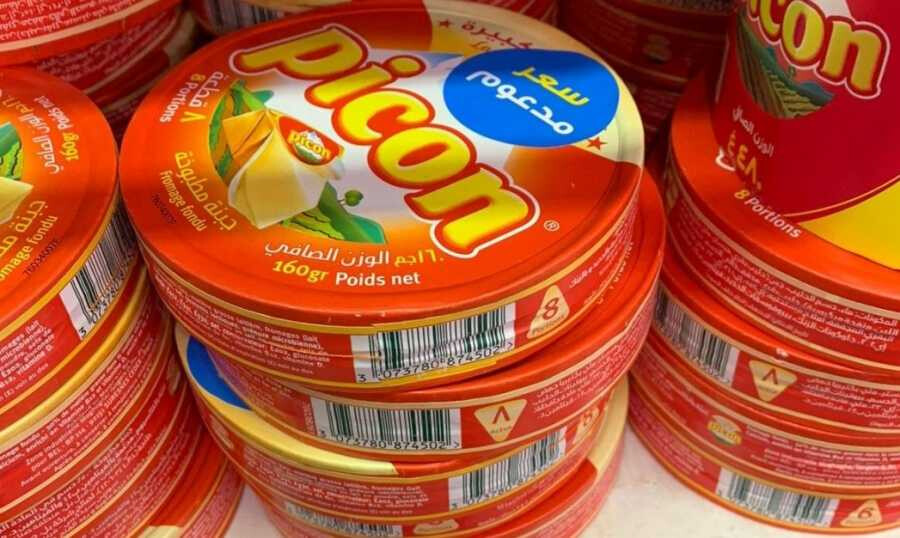In a time when the Lebanese are dreading the coming months for what they mean for subsidized products, these precious items have somehow made their way to foreign countries.
On Friday, journalist Abdallah Kameh posted a photo on his Twitter account, showing “Najjar” ground coffee packs, printed on them: “A product subsidized by the Ministry of Economy and Trade.”
The photo was taken in a supermarket in Turkey, where the journalist said the Lebanese coffee brand was being sold for 45 Turkish liras, or approximately $6.
A day earlier, a photo showing a “Picon” processed cheese pack on a shelf, said to be in Kuwait, was widely shared on social media platforms in Lebanon. The packs were stamped with the phrase: “Subsidized price.”
Expectedly, these subsequent incidents were met with anger in Lebanon, where the prices of unsubsidized commodities have been soaring with the devaluation of the Lebanese pound.
They were also met with a response from the Economy Ministry.
Caretaker Economy Minister Raoul Nehme summoned each of the Najjar and Picon companies and asked them to show documents that prove these products were exported individually. Nehme said that he would refer the matter to the financial prosecutor.
The director-general of the Economy Ministry, Mohammad Abo Haidar, told Annahar that Picon has no agents outside Lebanon and that the items could have been exported inside the bags of individual travelers after they bought them at retail price.
While the argument is plausible, it is highly improbable that supermarkets or food stores in these countries will simply buy a few items here and there from individuals carrying them inside their bags unless the quantity is of worth.
It also begs the question of how travelers were allowed to pass through with bags of the same food products, like Picon in this case, or Najjar coffee.







